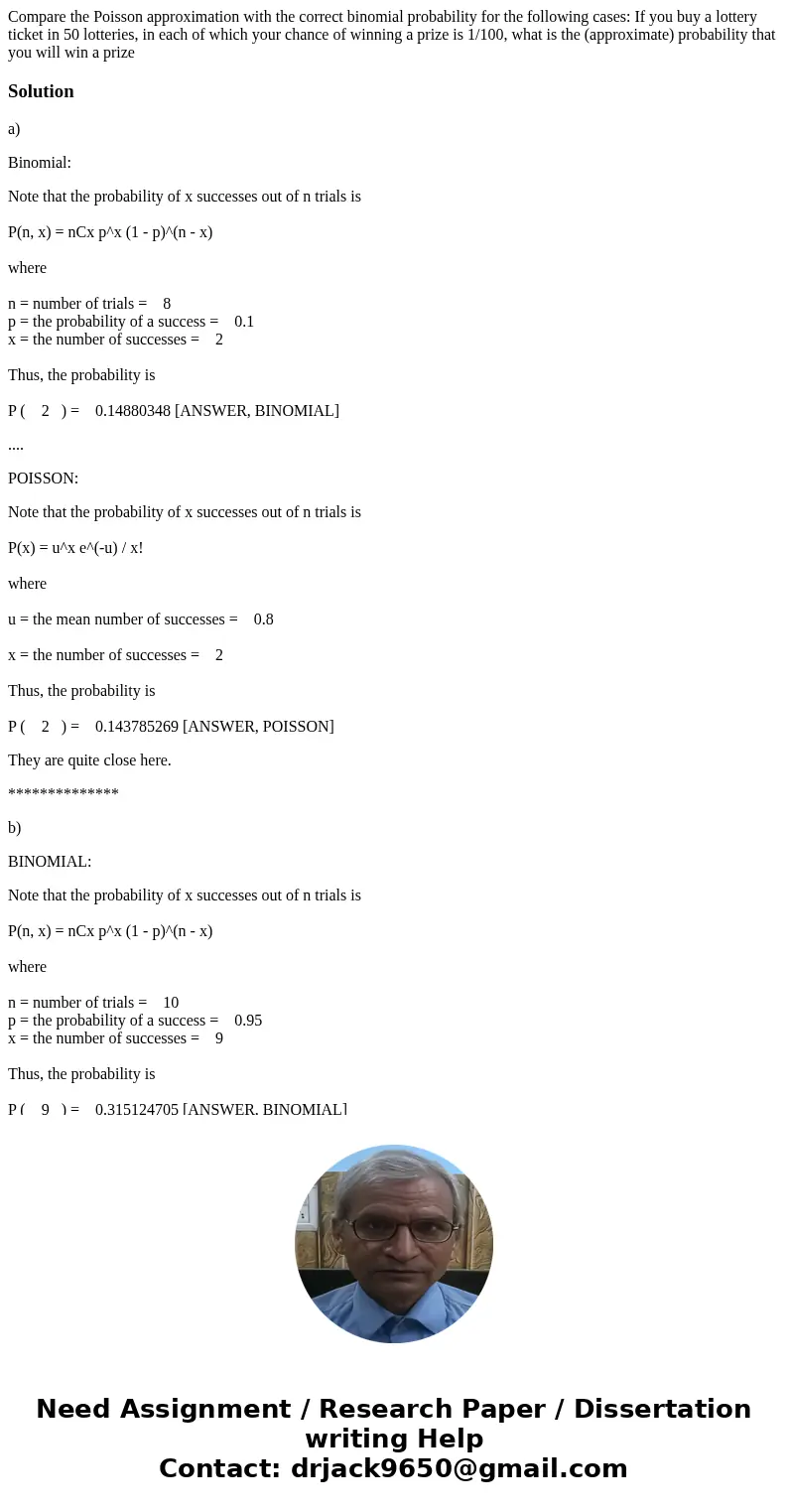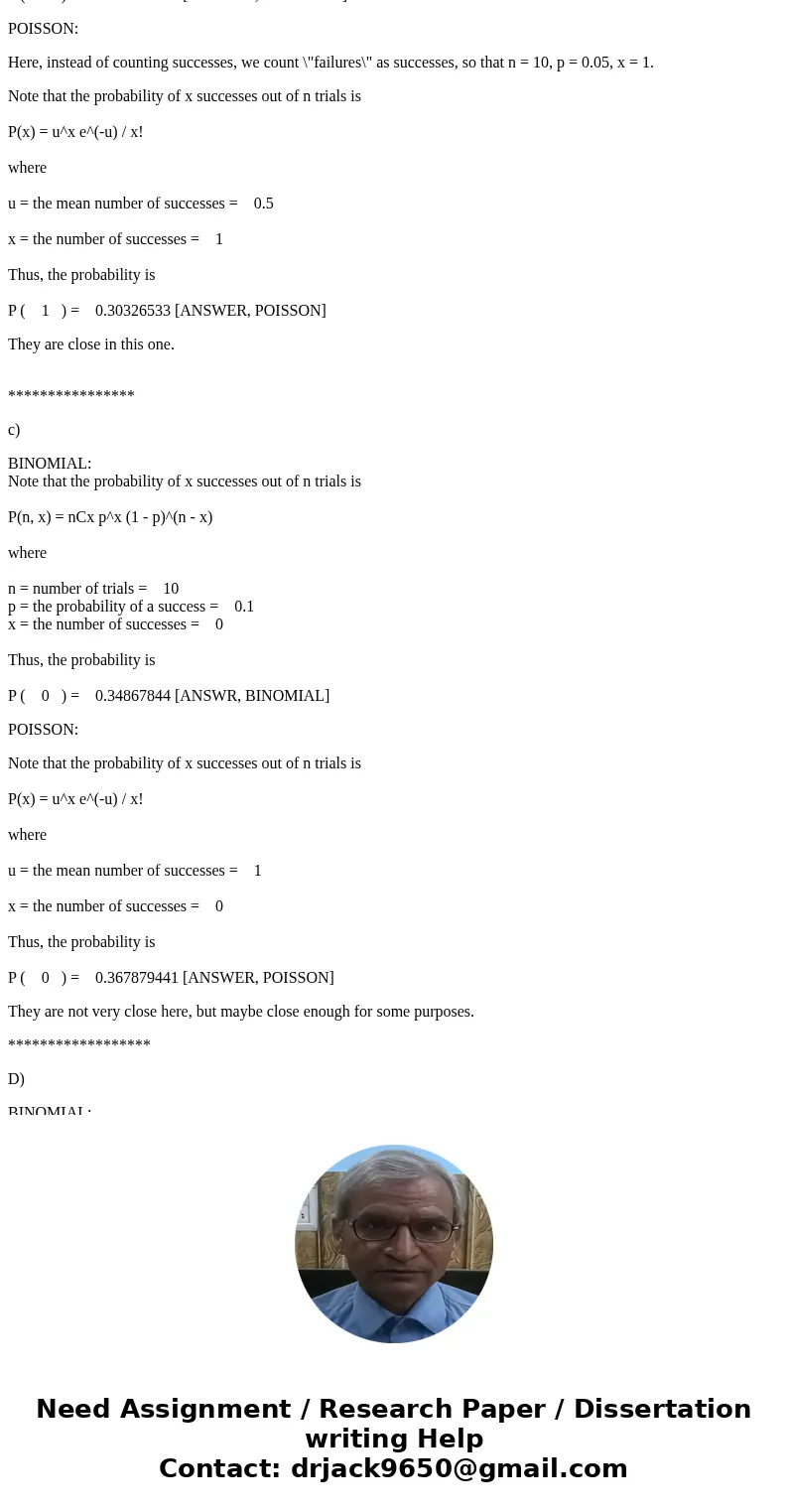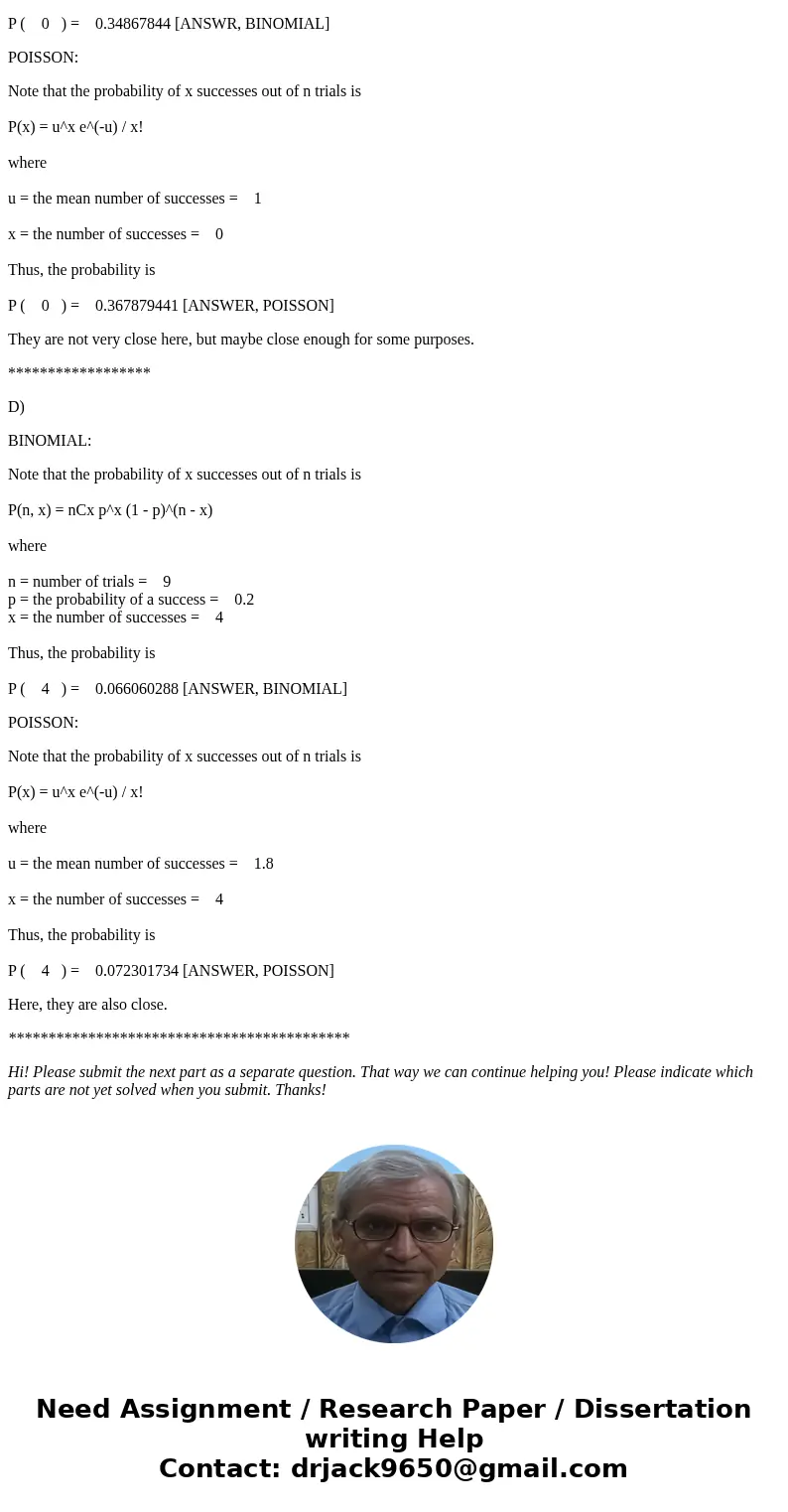Compare the Poisson approximation with the correct binomial
Solution
a)
Binomial:
Note that the probability of x successes out of n trials is
P(n, x) = nCx p^x (1 - p)^(n - x)
where
n = number of trials = 8
p = the probability of a success = 0.1
x = the number of successes = 2
Thus, the probability is
P ( 2 ) = 0.14880348 [ANSWER, BINOMIAL]
....
POISSON:
Note that the probability of x successes out of n trials is
P(x) = u^x e^(-u) / x!
where
u = the mean number of successes = 0.8
x = the number of successes = 2
Thus, the probability is
P ( 2 ) = 0.143785269 [ANSWER, POISSON]
They are quite close here.
**************
b)
BINOMIAL:
Note that the probability of x successes out of n trials is
P(n, x) = nCx p^x (1 - p)^(n - x)
where
n = number of trials = 10
p = the probability of a success = 0.95
x = the number of successes = 9
Thus, the probability is
P ( 9 ) = 0.315124705 [ANSWER, BINOMIAL]
POISSON:
Here, instead of counting successes, we count \"failures\" as successes, so that n = 10, p = 0.05, x = 1.
Note that the probability of x successes out of n trials is
P(x) = u^x e^(-u) / x!
where
u = the mean number of successes = 0.5
x = the number of successes = 1
Thus, the probability is
P ( 1 ) = 0.30326533 [ANSWER, POISSON]
They are close in this one.
****************
c)
BINOMIAL:
Note that the probability of x successes out of n trials is
P(n, x) = nCx p^x (1 - p)^(n - x)
where
n = number of trials = 10
p = the probability of a success = 0.1
x = the number of successes = 0
Thus, the probability is
P ( 0 ) = 0.34867844 [ANSWR, BINOMIAL]
POISSON:
Note that the probability of x successes out of n trials is
P(x) = u^x e^(-u) / x!
where
u = the mean number of successes = 1
x = the number of successes = 0
Thus, the probability is
P ( 0 ) = 0.367879441 [ANSWER, POISSON]
They are not very close here, but maybe close enough for some purposes.
******************
D)
BINOMIAL:
Note that the probability of x successes out of n trials is
P(n, x) = nCx p^x (1 - p)^(n - x)
where
n = number of trials = 9
p = the probability of a success = 0.2
x = the number of successes = 4
Thus, the probability is
P ( 4 ) = 0.066060288 [ANSWER, BINOMIAL]
POISSON:
Note that the probability of x successes out of n trials is
P(x) = u^x e^(-u) / x!
where
u = the mean number of successes = 1.8
x = the number of successes = 4
Thus, the probability is
P ( 4 ) = 0.072301734 [ANSWER, POISSON]
Here, they are also close.
*******************************************
Hi! Please submit the next part as a separate question. That way we can continue helping you! Please indicate which parts are not yet solved when you submit. Thanks!



 Homework Sourse
Homework Sourse